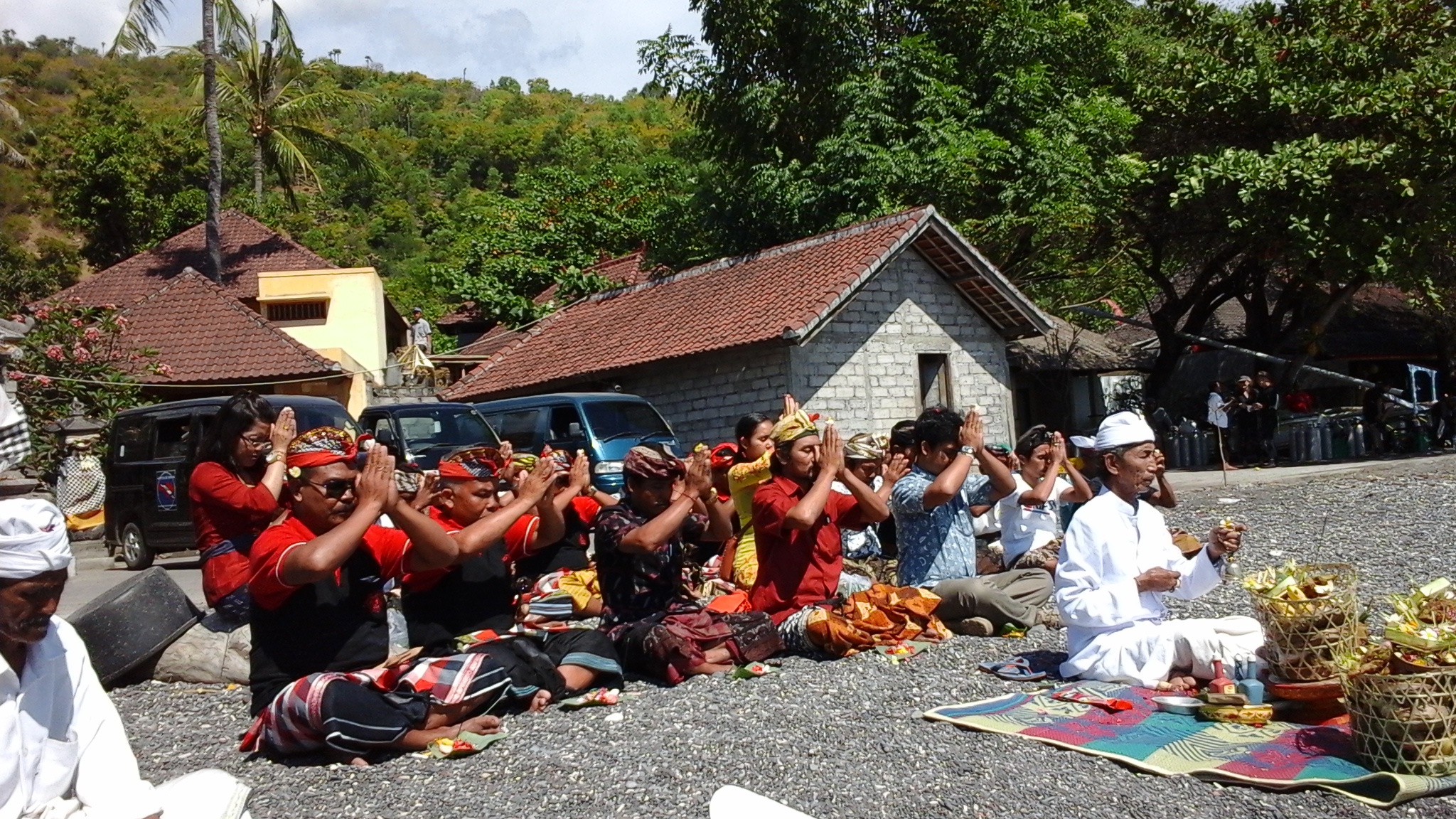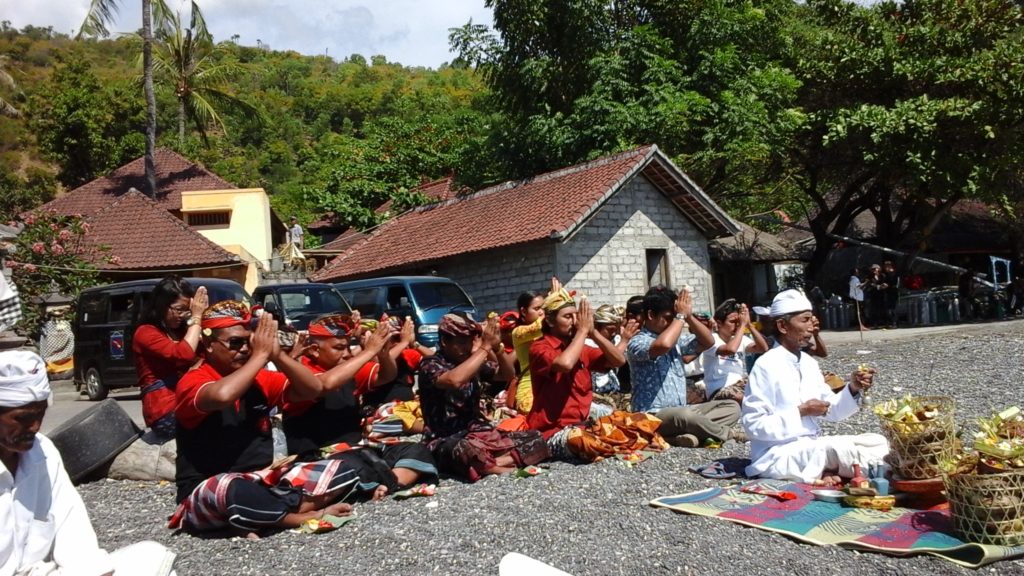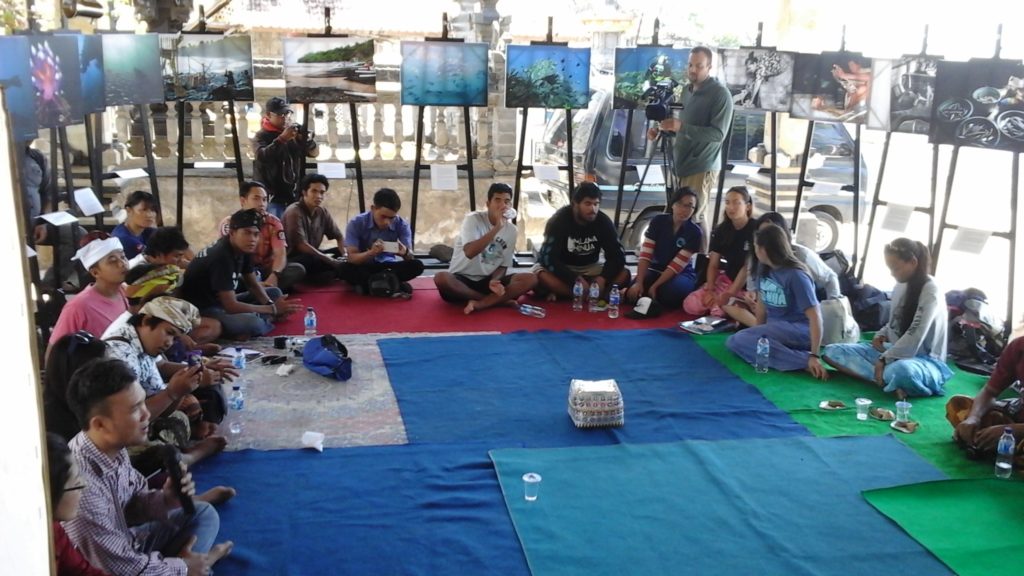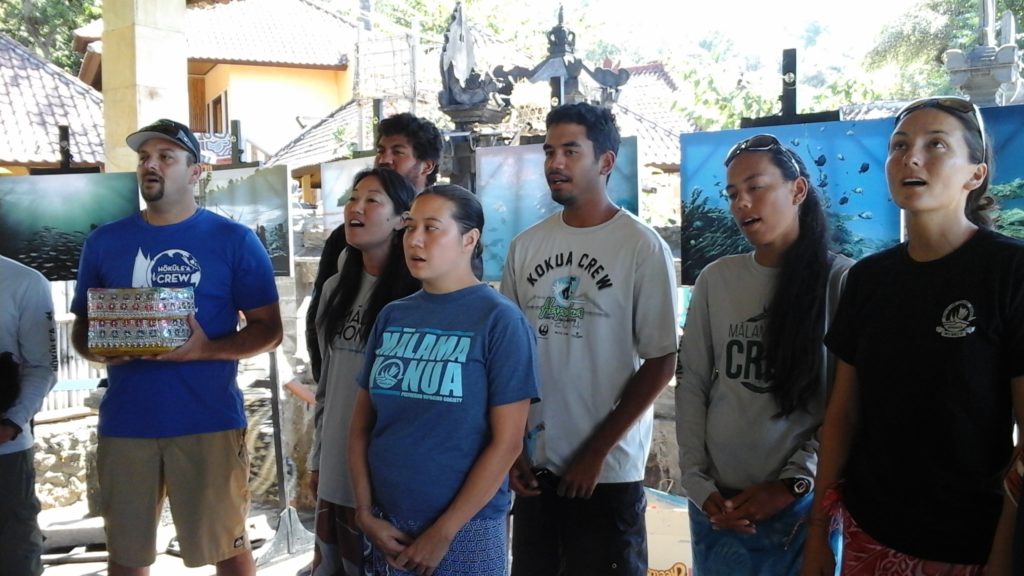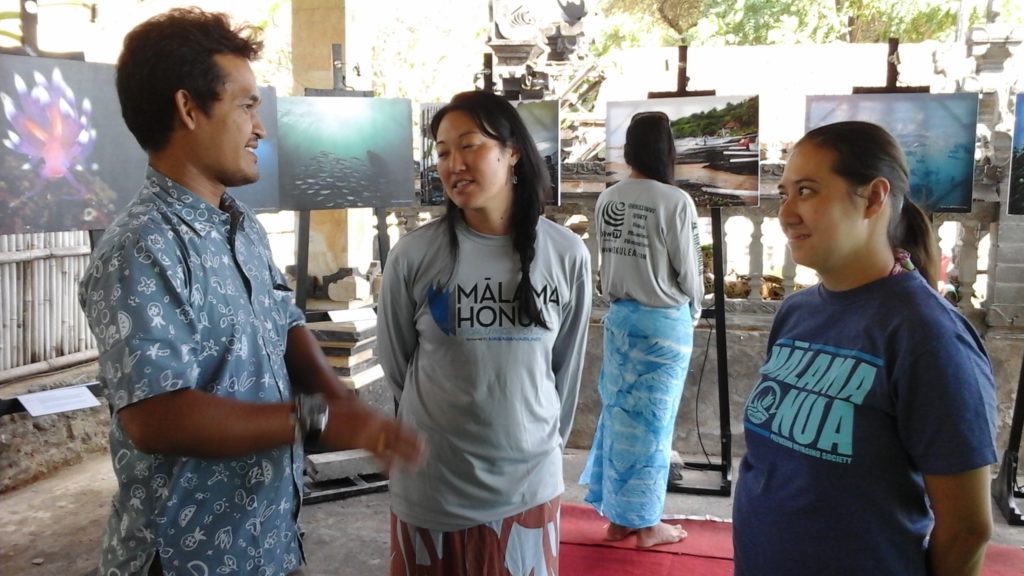The CORAL family came together last week in a unique way. A few months ago, the Polynesian Voyaging Society (PVS) reached out to Jaya Ratha, our program coordinator in Bali, to help organize the arrival of the Hōkūleʻa in Indonesia. The Hōkūleʻa is a double-hulled standing canoe traveling around the world using traditional navigation methods. Their voyage, called Mālama Honua, or to care for the Earth, is an effort to bring together global partners to protect our Earth and our oceans.
“One of the things that was interesting to me was that Hawaiʻi and Bali have a lot of similarities in terms of culture,” said Ratha. Bali and Hawaiʻi were designated as sister states back in 2014, as they are both hugely popular tourism destinations and they share similar histories. This amazing around-the-world voyage brought the Hawaiian culture and heritage to Indonesia—making these two diverse islands feel incredibly connected. As a complete coincidence, CORAL’s Program Coordinator in Maui, Chana Ane, remembers going on one of the early launchings of the Hōkūleʻa and her family is extremely involved in PVS.
During its voyage, the Hōkūleʻa stops in various ports to raise awareness. The PVS brings in teachers from Hawaiʻi to join the crew and bring traditional knowledge and contemporary ideas to local communities.
The Hōkūleʻa arrived in Bali on August 1, after leaving Australia, and we, along with Reef Check Indonesia, Lensa Masyarakat Nusantara (LMN) and CI Indonesia, helped connect them with various communities in Bali, including the Amed community in the Karangesem regency. The community in Amed has worked hard to protect its ocean environment, which is now officially recognized as a locally managed marine area. The arrival of the PVS helped raise awareness about their work. In addition, it helped connect the community with local government officials to highlight the conservation initiatives underway.
While in Amed, the Hōkūleʻa team snorkeled with a community guide and saw the effects of the various threats harming coral reefs. These threats were not unknown to them, as many mirror the same ones affecting Hawaiʻi’s coral reefs. They also learned about traditional salt making, and heard from a small group of people trying to protect and maintain Balinese antiquity.
The group shared stories and spoke about traditions and their different cultures. What they learned is that they face similar challenges. Tourism is increasing in Bali. Particularly, in the small town of Amed where people are struggling to protect their values and beliefs. The PVS team from Hawaii was empathetic. They passed along insight on how their state has coped with the influx of tourists, and how they’ve worked to protect their environment, heritage, and cultural identity.
Our international teams are spread out all over the world, but we are all connected in various ways. The coming together of the Hawaiian and Balinese cultures made that very evident this week. Like the PVS, we believe in global partnerships. After all, we won’t be able to protect coral reefs without them.
Read more about the Hōkūleʻa’s visit to Bali on their blog, updated regularly.
